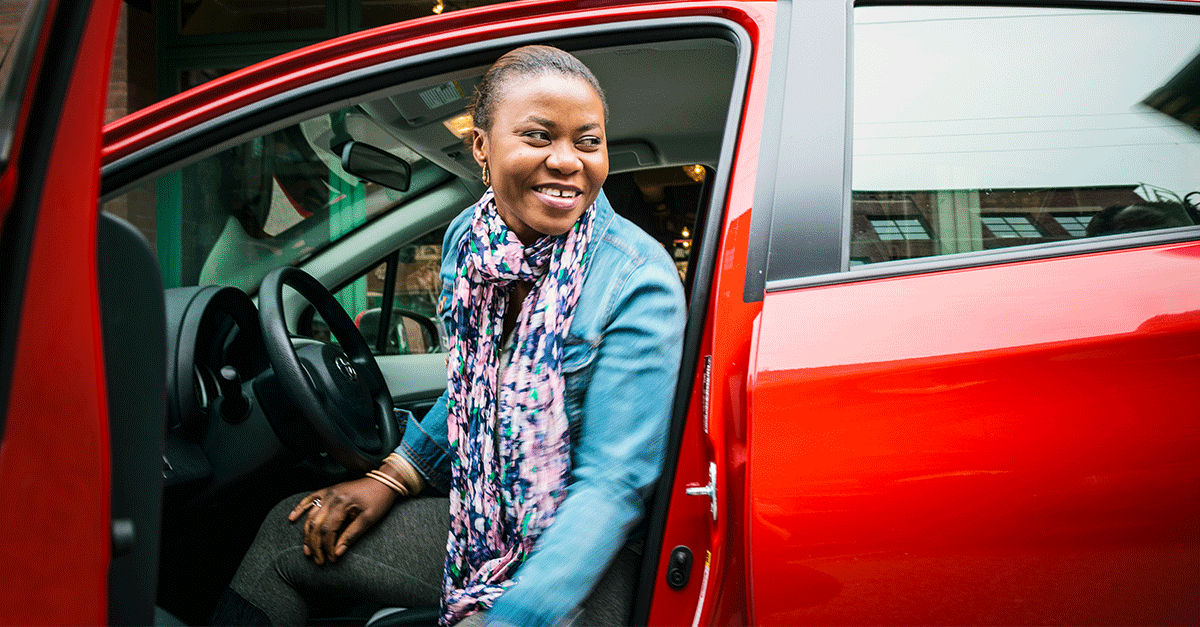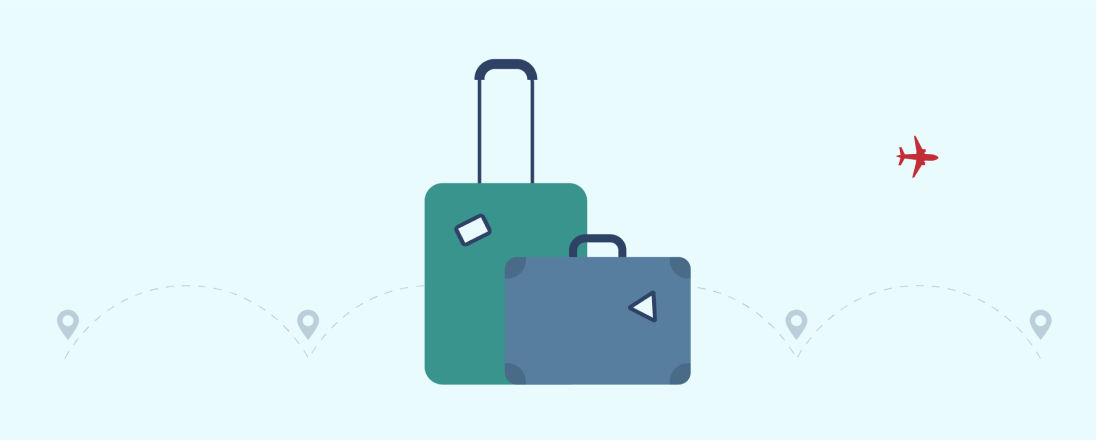LEASING A CAR VS BUYING
We look at the eternal question: Is it better to lease or buy your next car?
Article published: January 12, 2022

Before we tackle this question, let’s set the stage with an example.
You’re considering a new car with a sticker price of $34,000. To buy it, with a 7%, four-year loan and a down payment of 20% ($6,800), your payment would be $650 a month.
If you were to lease instead, you would pay a one-month refundable security deposit and your payment would be $450 a month.
Thus, leasing would save you $200 a month, and you would need only $450 down, not $6,800 (plus, in both cases, sales tax). This is why leasing is so popular. But “Is it better to lease or buy a car” is not such a simple one to answer.
Why lease payments are so cheap
Car ownership has three parts:
- Equity (ownership)
- Depreciation (loss in value over time)
- Interest expense (on the loan, if any)
If you finance the purchase of a car, you pay for all three parts, and you will own the vehicle outright in a few years. But if you lease, you are paying only for use of the vehicle.
So you are covering the car’s depreciation and interest, not the equity, and you return the car at the end of the lease term. This is why monthly lease payments are lower than purchase payments. Leasing, quite simply, is the difference between owning a car and borrowing one.
Why a car dealer wants you to lease
If you lease a car, you pay the lease amount each month for the term of the lease. Then you give the car back, giving the dealer the chance to resell it.
This means the dealer doesn’t have to charge you (the first buyer) the full MSRP; you pay only the difference between what the car is worth today and what it will be worth a few years from now when the lease term is complete. The second buyer pays the rest at that time. Leasing, then, features lower monthly payments because dealers expect the car to retain a certain value, also known as the residual value.
Let’s look at our original example. Say the dealer expects this $34,000 car to be worth $15,200 in four years. He would, therefore, want you to pay $18,800 and the second buyer to pay $15,200. Thus, your lease payments would be based on just the residual value of $18,800, whereas your payments to buy would be based on the full $34,000. That’s why your monthly lease payments are $450 instead of $650, which helps make leasing a car vs buying an attractive option. When the dealer resells the car in four years, he’ll get the other $15,200.
Luxury cars tend to offer better lease deals than less expensive cars, for they retain more of their value, and the higher the residual value, the lower your lease payments.
3 money-saving tips when leasing vs buying a car
Here are three items to keep in mind before you decide to lease your next car:
1. CONSIDER GAP INSURANCE.
This is an important – yet often overlooked – element of leasing.
Gap insurance covers the difference – or the gap – between the depreciated value of the car and what you still owe. Your contract might say the car’s residual value at the end of the lease will be $15,200, but the car’s actual value will be only $10,000. If you wreck the car three months before your lease expires, the insurer will pay the dealer (who owns the car) the actual market value, which is $10,000. But your contract says the residual value is $15,200. That means you are responsible for the other $5,200.
To help avoid incurring losses due to accidents, confirm if your lease contract includes gap insurance – even if you must pay extra for it. Being without it is like driving without insurance.
2. AVOID THE CAP COST REDUCTION.
When someone buys a car, the more money they put down, the lower their monthly payments typically are. Similarly, to lower your lease payments, you can make a cap (short for capitalized) cost reduction, which is a large, one-time payment made at the start of the lease. As with a down payment, the more you pay in cap cost reductions, the lower your monthly payments. However, this is where the similarity ends.
Remember that when leasing a car vs buying, you do not own the vehicle. Thus, if you make a cap cost reduction, you are making a down payment on property that you don’t own. That’s why we often advise our clients not to pay the cap cost reduction – no matter how much the dealer encourages it, and no matter how much it reduces your monthly payments.
Instead of paying a cap cost reduction to lower your payments, ask the dealer to let you make additional security deposits. This will have the same effect as a cap cost reduction, except you’ll get the deposit back when you return the car.
3. FOREGO THE OPTIONAL EQUIPMENT IN A CAR YOU’RE NOT BUYING.
It may be enticing for the dealer to offer all the extra bells and whistles on your new car, but remember, you’re just borrowing it. Use your best judgement to determine if these are necessities or if you can forego the optional equipment.
Let’s take a new example where you’ve negotiated to lease your next car for $250 per month for 36 months, with no cap cost reduction.
But then you decide to have the dealer install mats, fancier rims, an iPhone adapter and the latest navigation system. The cost of all these items came to $1,800, so the dealer added $50 to the monthly payment.
On the surface you might think this is a great deal because you are paying for the options over three years and the dealer did not add in any interest.
But when the lease expires three years later and you return the car, the mats, rims, iPhone adapter and navigation system go with it. That means you paid the full cost of owning those items, but only rented them for three years.
A better strategy would be to incorporate the cost of the options into the overall price of the car and then negotiate the lease price based on the new total. That way, you’re only paying for the options during the term of your lease.
When leasing a car, keep in mind that you are renting the car and everything in it. Don’t pay the costs of ownership when you lease.
Other considerations for leasing vs buying:
LEASING AND TAXES
You are liable for sales tax when leasing even though you do not own the car. If your state levies a personal property tax, you’ll have to pay this, too. But to entice you to lease, many dealers offer to pay the property tax for you. Shop around for the best deal as you decide whether to lease or buy your next car.
DON’T LEASE BEYOND THE CAR’S WARRANTY
If you choose to lease, don’t lease for a term beyond the car’s warranty. If the car comes with a two-year, bumper-to-bumper warranty, for example, get a two-year lease. By opting for a three-year lease, you could be stuck with huge repair bills in year three – on a car you don’t own and plan to return to the dealer.
LEASING FOR BUSINESS
Leasing makes great sense for business, regardless of how many miles you drive because you are allowed to deduct the cost as a business expense. (If you buy a car for business, you must depreciate it instead.) These can add up to be sizable tax benefits because you can also deduct the associated costs with leasing a car, such as maintenance, gas or mileage, insurance and registration fees.
Is it better to lease or buy a car? Here is the answer:
To determine whether you should lease or buy your next car, answer these two simple questions:
1. HOW MANY MILES DO YOU DRIVE PER YEAR?
In most leases, you are allowed to drive only 10,000 to 15,000 miles per year, 40,000 to 60,000 miles on a four-year lease. Anything more will cost you up to 25 cents per mile.
As a result, if you drive more than 10,000 miles a year, it can be cheaper for you to negotiate a more expensive lease with a higher mileage limit than for you to pay 25 cents for every mile over the limit you drive.
If you know you’ll drive significantly fewer miles than 10,000 to 15,000 per year, you can negotiate a lower lease payment.
2. HOW LONG DO YOU GENERALLY KEEP YOUR CAR?
Leasing is best for people who keep their cars for four years or less. Remember that when leasing, you never enjoy a payment-free month. At the end of the lease, you must turn in the car and get a new one and start the process over with a new lease or purchase contract.
Thus, if you like to keep cars for seven or eight years, you’ll find that, over the long run, leasing is much more expensive than buying.
Since a vehicle is a large purchase, talk with your financial advisor before you decide whether to lease or buy your next car, how much to put down and whether you should finance. The right decision can save you thousands!
Neither Financial Engines Advisors L.L.C. nor any of its advisors sell insurance products. Edelman Financial Engines affiliates may receive insurance-related compensation for the referral of insurance opportunities to third parties if individuals elect to purchase insurance through those third parties. You are encouraged to review this information with your insurance agent or broker to determine the best options for your particular circumstances.



